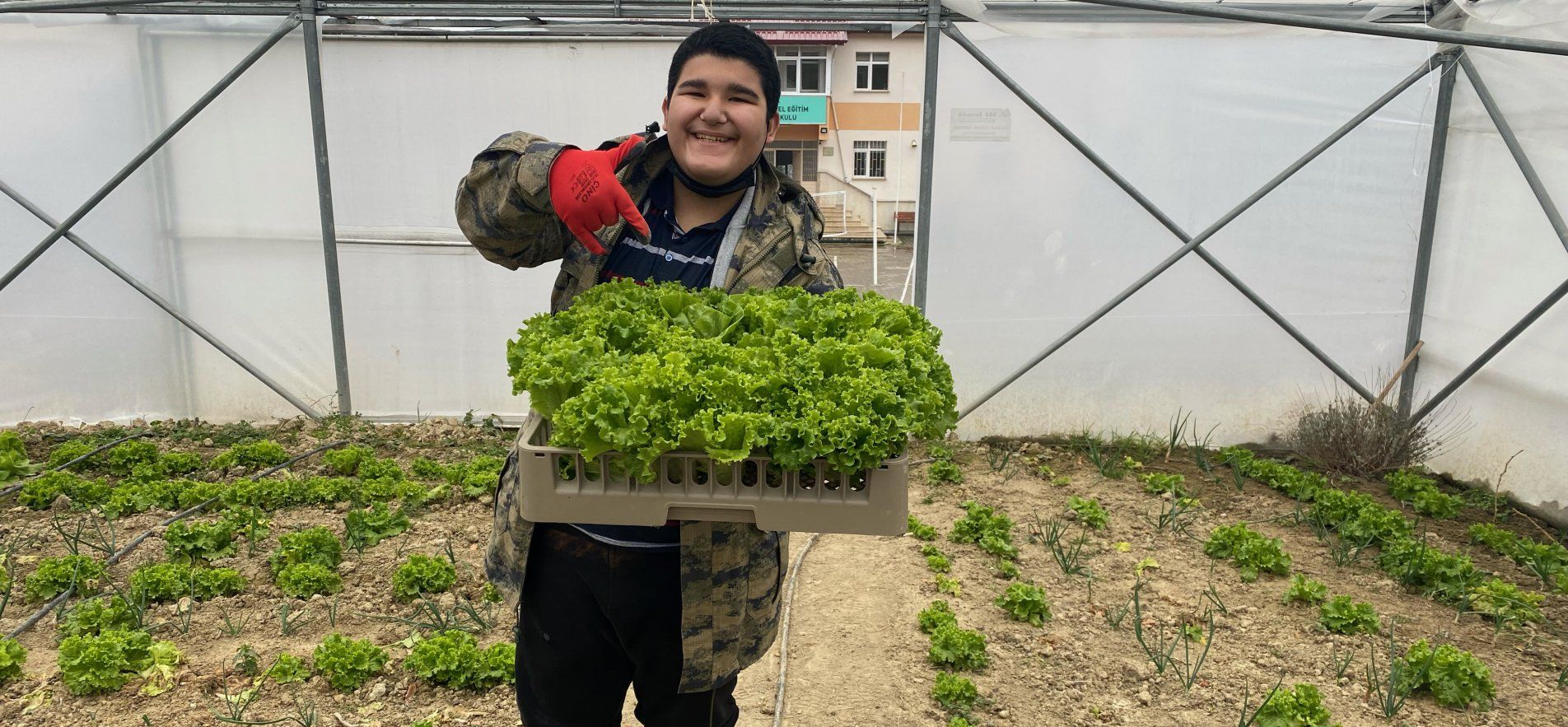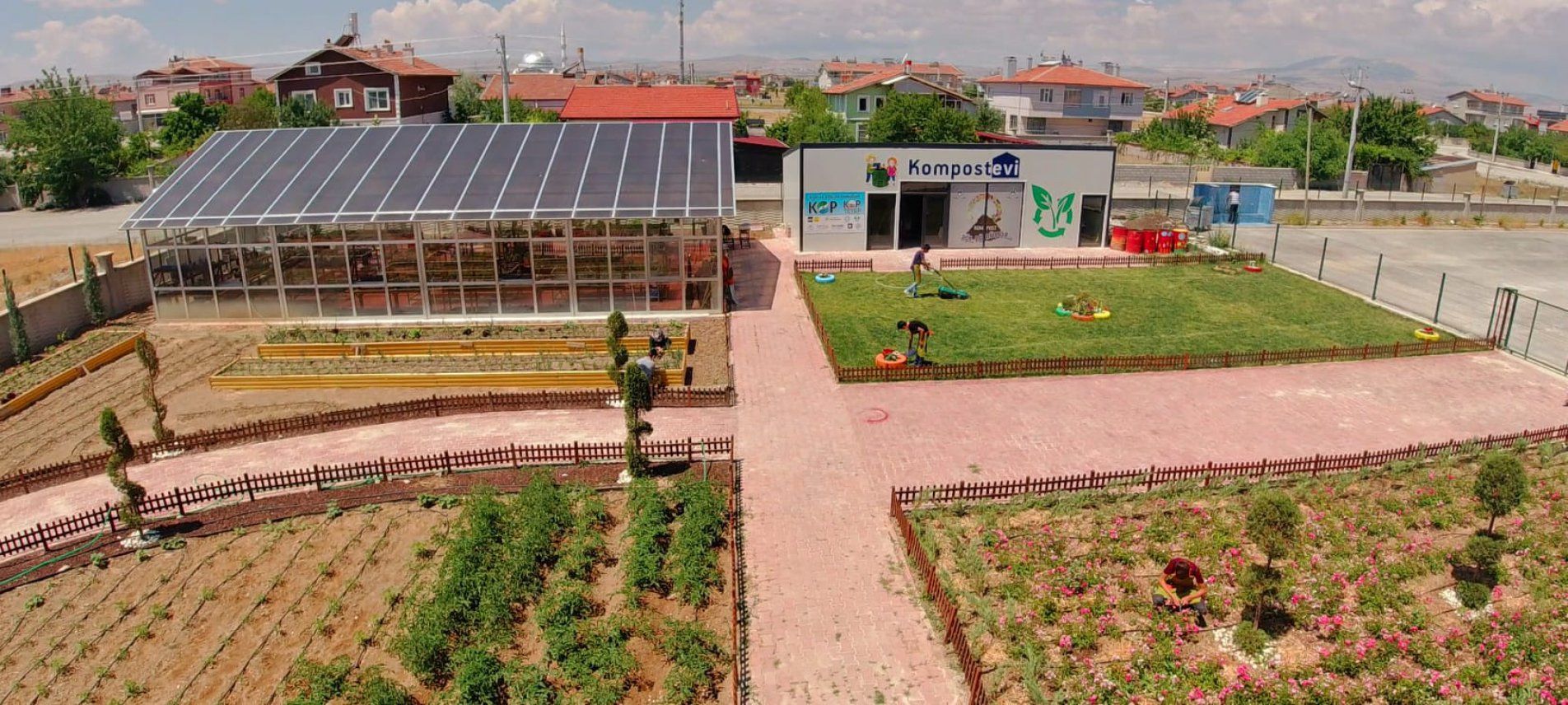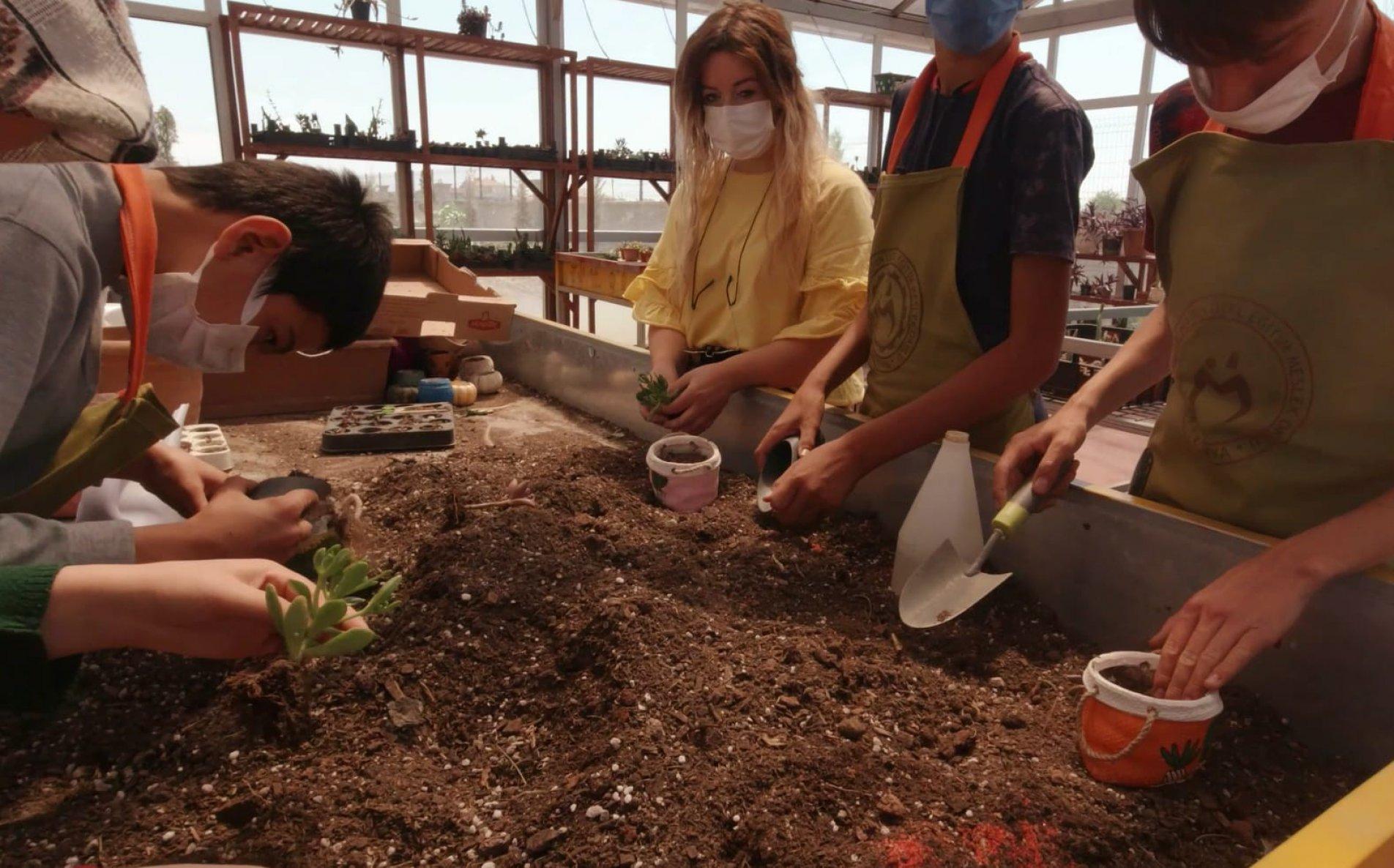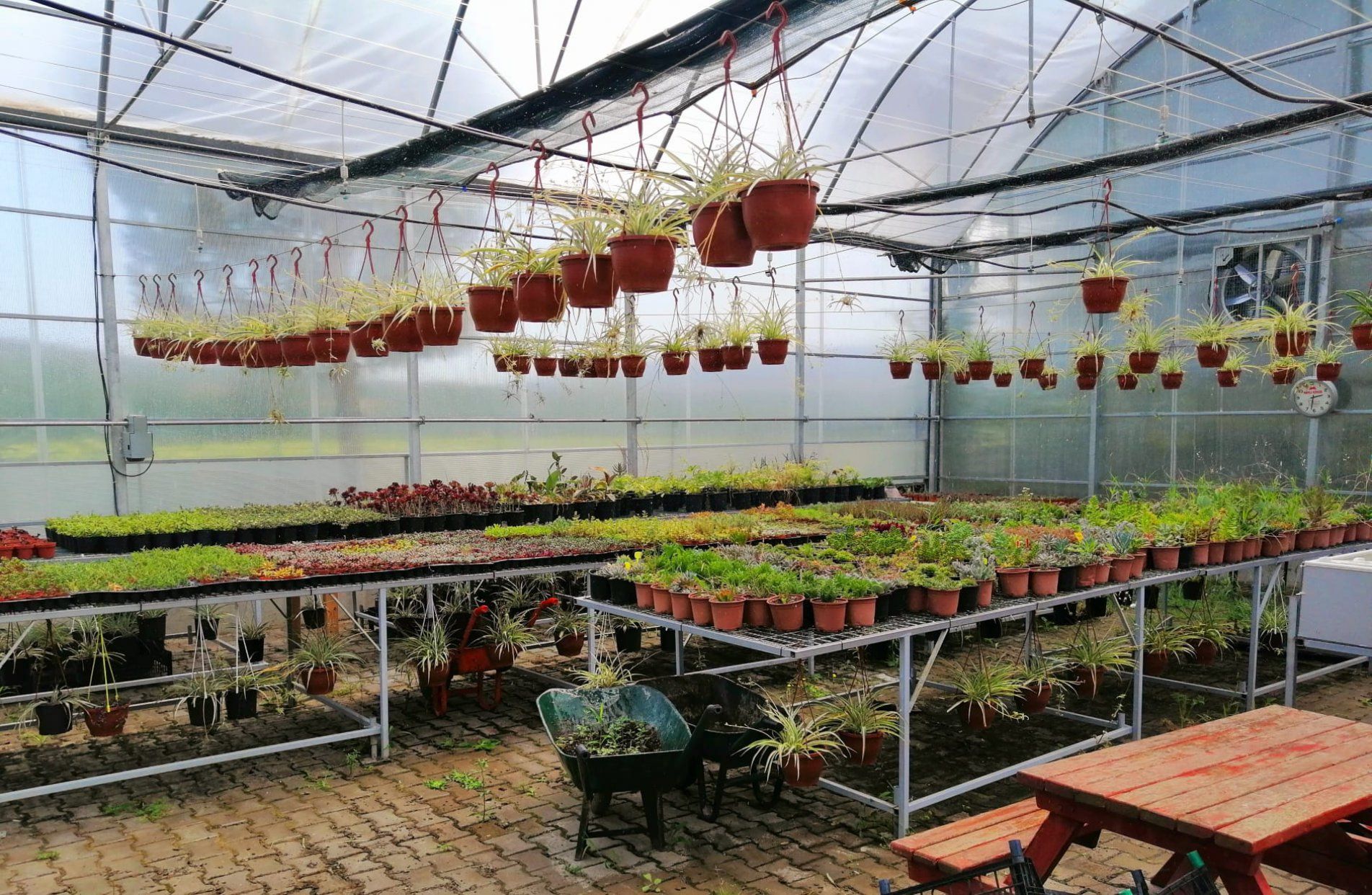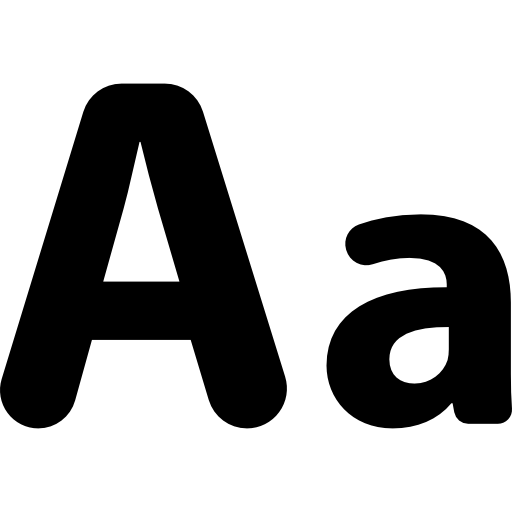Special Education Vocational Schools affiliated to the Directorate General for Special Education and Guidance Services of the Ministry of National Education carries out multidimensional activities for the education of students who need special education. Within this framework, it implements studies in three main agricultural areas namely horticulture, field crops and ornamental plants-landscape.
There are 191 special education vocational schools in the country and 55 of them have focused on agriculture and 29 of them have rotating capital. There are compost machines which contribute to recycling in 41 of the agricultural special education high schools, there are application greenhouses in 32 of them, there are drip irrigation systems in 18 schools, there are foggy irrigation systems in 2 and there is a springer irrigation system in one school.
Detailed activities in 3 professions
As a part of horticultural activities, special education high schools carry out fruit plant production by using planting, sowing, cutting graft, layering and budding methods and sell their produce. Horticulture departments also teach greenhouse production, mushroom cultivation, soilless agriculture techniques in addition to fertilizing and budding.
The field crops departments teach greenhouse production, graft production, seeded production, hydroponic farming etc. methods as well as preparing soil for sowing, fertilizing, irrigation and pest control. Moreover, students have the opportunity to learn cold and hot season grains, annual legumes, perennial legumes, forage crops, mushroom cultivation and vegetable and fruit growing. Similar to the horticulture department, field crops department also teaches special techniques such as fertilizing and pruning.
Ornamental plants and landscape department teaches greenhouse production, cutting grafts, seeded production and hydroponic farming methods. It also gives education about preparing soil for sowing, fertilizing, irrigation and pest control. Moreover, students have the opportunity to learn annual ornamental plants, perennial ornamental plants, grass, hobby garden, vertical garden and terrace garden, seasonal flower growing, succulent flower design, and medical aromatic flower growing methods.
Education for the wide range production from field to tables
Special education vocational high schools stand out with their agricultural production, fruit and vegetable production, green vegetable production, ornamental plants and medicinal aromatic plants.
Within this framework, they produced 9,600 liters of compost soil and 600 liters of vermicomposting. In the animal production category, Konya Meram Melike Hatun Special Education Vocational High School produced 720 organic eggs, 10 chickens and 10 rabbits this year. Special education vocational schools also sold compost soil and made contributions to rotating capital.
8 special education vocational schools made fruit production and produced a total of 640 seedlings of avocado, mulberry, grape, strawberry, apple, chestnut, almond, plum, peach, pistachio, raspberry and blackberry. They also produced olive oil, olives, green olives, grapes, asparagus, watermelons, strawberry, plum and dragon fruit. Total fruit production of these schools was 285 kilograms.
21 special education vocational schools made vegetable production and produced a total of 30,820 seedlings of tomato, eggplant, cucumber and potato. They also produced 54,261 kilograms of green beans, pepper, tomatoes, carrots, garlic, legumes, eggplants, cornflowers, peas, potatoes, broccolis, cabbages and leeks and 1,210 corns.
22 special education vocational schools made green vegetable production and they produced 100 thousand and 330 lettuce and 9 thousand and 970 bundles of parsley, rocket, kale, basil, spinach, mint and watercress.
17 special education vocational schools focused on cactus, succulent flowers and other ornamental plants. They produced 10,300 cactuses from 39 families and 3,500 succulent flowers from 20 different families. They also produced 103,651 annual and perennial ornamental plants from 26 different varieties.
Yalova Central Township Esvet Sabri Aytaşman Special Education High School in Yalova and Konya Meram Melike Hatun Special Education High School are producing medical aromatic plants and they grew lavender, goldilocks, rosehip, rose, geranium, rosemary, thyme and Echinacea. They produced 5.49 seedlings and 20,000 grafts.
Local stakeholders take a role in the sale of products
Special education vocational schools are selling their products to municipalities, local markets and shops and teacher-parent associations affiliated to the local national education directorates. Unsold products are used as raw material at schools.
Schools earned 424,685 TL income in 2022 and this amount was used for the repair and maintenance of machines and devices.
Meanwhile, Kütahya Bahattin Çini Special Education Vocational School and Kütahya Municipality signed an agreement for recycling organic wastes to compost soil while Konya Special Education Vocational School uses domestic organic waste for producing ceramic flower pots.
